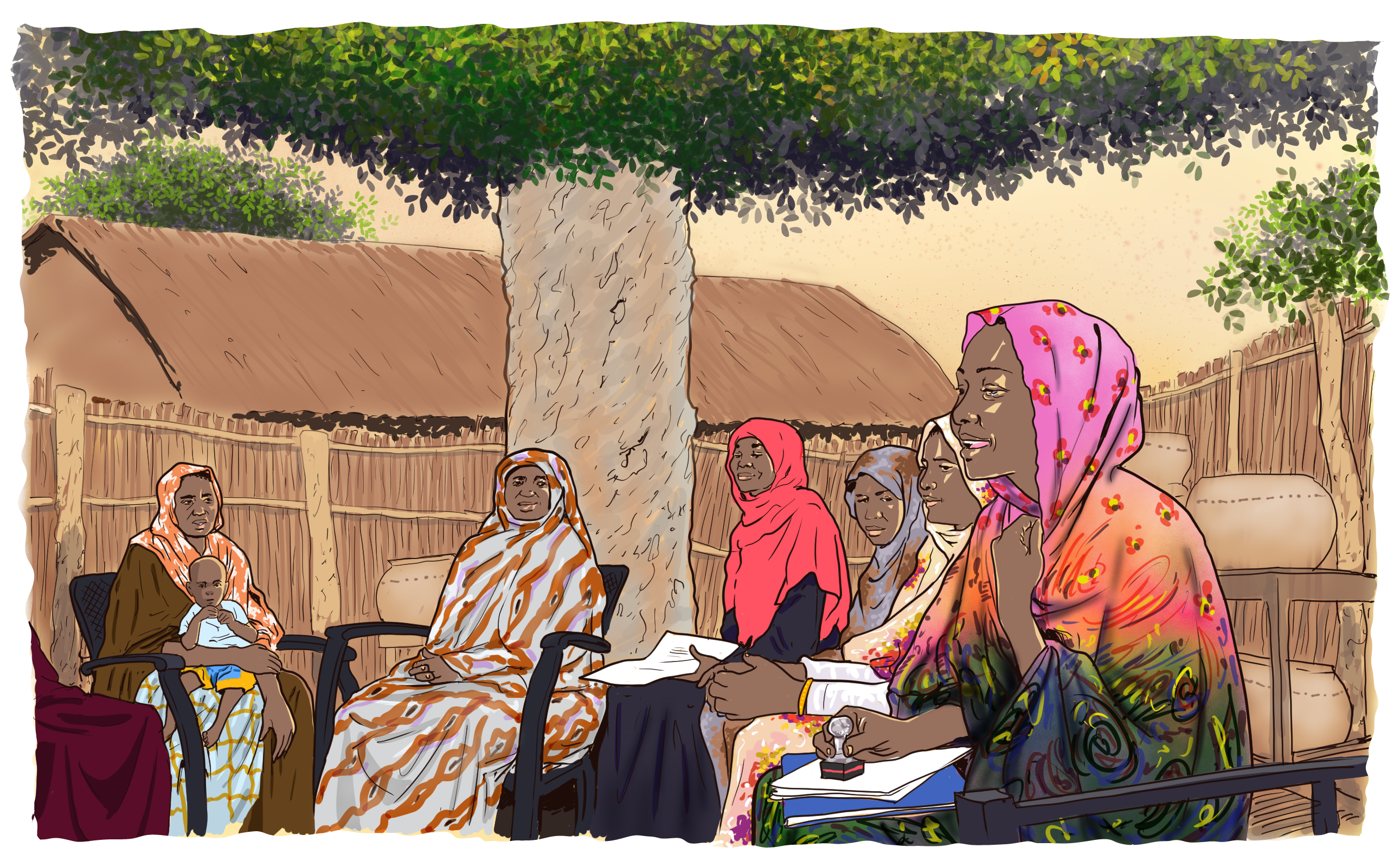In the words of Aliya*: The current situation of women and girls is far from normal
Date:

Aliya has worked in the humanitarian and development fields for more than fifteen years, focusing on economic empowerment, peacebuilding, water, sanitation and hygiene, protection interventions including child protection and GBV in South Kordofan and North Darfur, and working with internally displaced persons, refugees, returnees, and host communities. She is based in Sudanese region of South Kordofan.
A region in chaos
Kordofan State encompasses the northern, southern, and western regions of Kordofan. Northern Kordofan is one of the areas most affected by the conflict, as it houses a military airport and serves as a strategic reserve for the Sudanese army. The well-known airport, Al-Abiad, has been destroyed, as has the Social Security Hospital, the region’s largest and highest-quality healthcare facility that provides global-standard services. Additionally, the large market has been subject to looting, arson, and road blockades, resulting in the disruption of public movement.
The price for women and girls
Southern and Western Kordofan states did not witness direct conflict between conflicting parties. However, they have been affected by road blockades and a scarcity of food, fuel, and clean water, leading to the disruption of essential institutions and banking services. Women have not been spared from security threats and violence; they have been forcibly used to gather information, and some women have been abducted in front of their helpless families due to the overwhelming power of the armed forces and the absence of any impartial authority. These security and economic tensions have limited the work of women's groups, which have resorted to limited coordination through WhatsApp groups despite the weak social communication networks.
The current situation of women and girls is far from normal. They are unable to lead their usual lives, such as going to markets or engaging in work to sustain their livelihoods, except for limited working hours.
The conflict has had physical impacts like loss of lives, varying injuries, direct violence against women, exploitation, cases of obstructed childbirth without medical care. It also has psychological impacts stemming from witnessing sudden death and destruction; hearing explosions and bombings; displacement; and loss of children, family members, and friends. We are also seeing loss of possessions and livelihood sources; scarcity of essential goods such as food; and price hikes due to the scarcity of food supplies. Health is also impacted due to acute and chronic diseases and the lack of healthcare or treatment.
Women’s groups stepping up
We are the Women of the Nuba Mountains Initiative/South Kordofan, which is part of the Mothers of Sudan initiative and the Peace for Sudan platform. We are a group of women's organizations, networks, activists, and social and legal platforms representing all states in Sudan. Under the slogan "No to War", we call for an immediate and permanent cessation of the war. We are collaborating with displaced and affected families to provide assistance in the form of shelter, food, medical and healthcare supplies, and psychological support. We are also collecting information about the conditions of women in conflict and displacement areas and submitting reports to assist them. And we are coordinating women's initiatives to improve the situation of women and girls, and coordinating the hosting of displaced families, especially in the absence of open camps or shelter centers other than schools.
Our priorities for women include:
- Immediate end to the conflict.
- Providing humanitarian aid that preserves the dignity of women (food, healthcare, and protection).
- Protecting women from gender-based violence.
- Building women's capacities to deal with disasters, particularly in shelter centers.
- Providing psychological support for survivors of violence.
- Involving women in social fabric reconstruction.
- Establishing safe houses for girls displaced due to the war.
- Strengthening women to build their capacity to get knowledge about their rights, especially through formal and informal education, to get enough information to decide and to have more chances for economic empowerment.
The “Peace for Sudan Platform” is a network formed in response to the war in Sudan and facilitated by the UN Women Sudan office. It includes more than 49 women-led peace initiatives, women-led humanitarian initiatives, women-led civil society organizations, women representatives of emergency rooms (established as a response to the war), collations, networks, from across the different regions in Sudan.
The views expressed in this article are those of the author and may not necessarily reflect those of UN Women.
*Name changed to protect her privacy